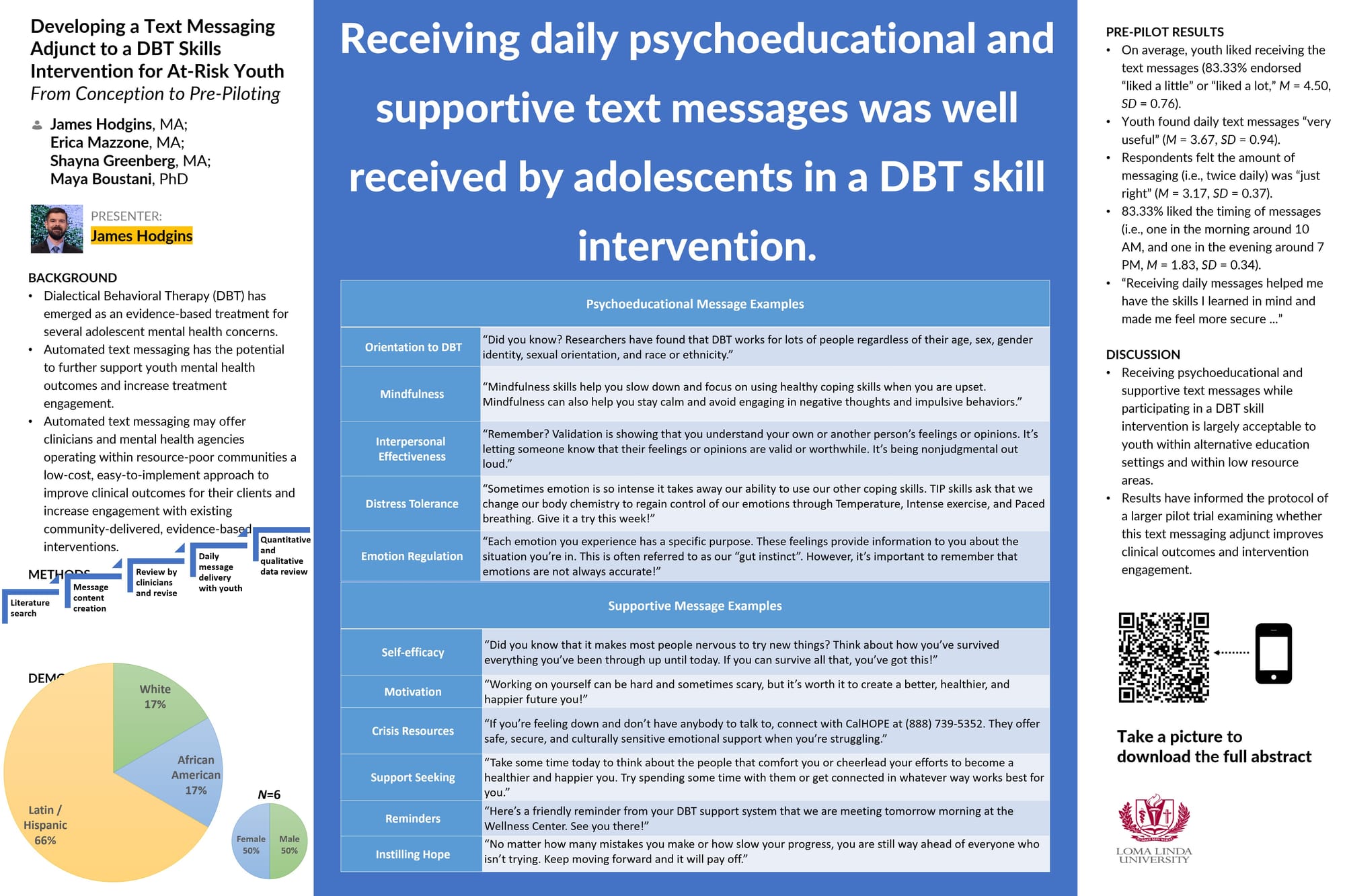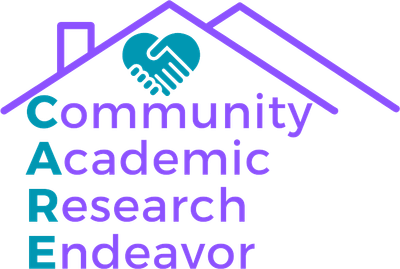Developing a Text Messaging Adjunct to a DBT Skills Intervention for At-Risk Youth From Conception to Pre-Piloting

Dialectical Behavioral Therapy (DBT) has emerged as an evidence-based treatment for several adolescent mental health concerns. Automated text messaging has the potential to further support youth mental health outcomes and increase treatment engagement. Automated text messaging may offer clinicians and mental health agencies operating within resource-poor communities a low-cost, easy-to-implement approach to improve clinical outcomes for their clients and increase engagement with existing community-delivered, evidence-based interventions. On average, youth liked receiving the text messages (83.33% endorsed “liked a little” or “liked a lot,” M = 4.50, SD = 0.76). Youth found daily text messages “very useful” (M = 3.67, SD = 0.94). Respondents felt the amount of messaging (i.e., twice daily) was “just right” (M = 3.17, SD = 0.37). 83.33% liked the timing of messages (i.e., one in the morning around 10 AM, and one in the evening around 7 PM, M = 1.83, SD = 0.34). “Receiving daily messages helped me have the skills I learned in mind and made me feel more secure ...” Receiving psychoeducational and supportive text messages while participating in a DBT skill intervention is largely acceptable to youth within alternative education settings and within low resource areas. Results have informed the protocol of a larger pilot trial examining whether this text messaging adjunct improves clinical outcomes and intervention engagement.



